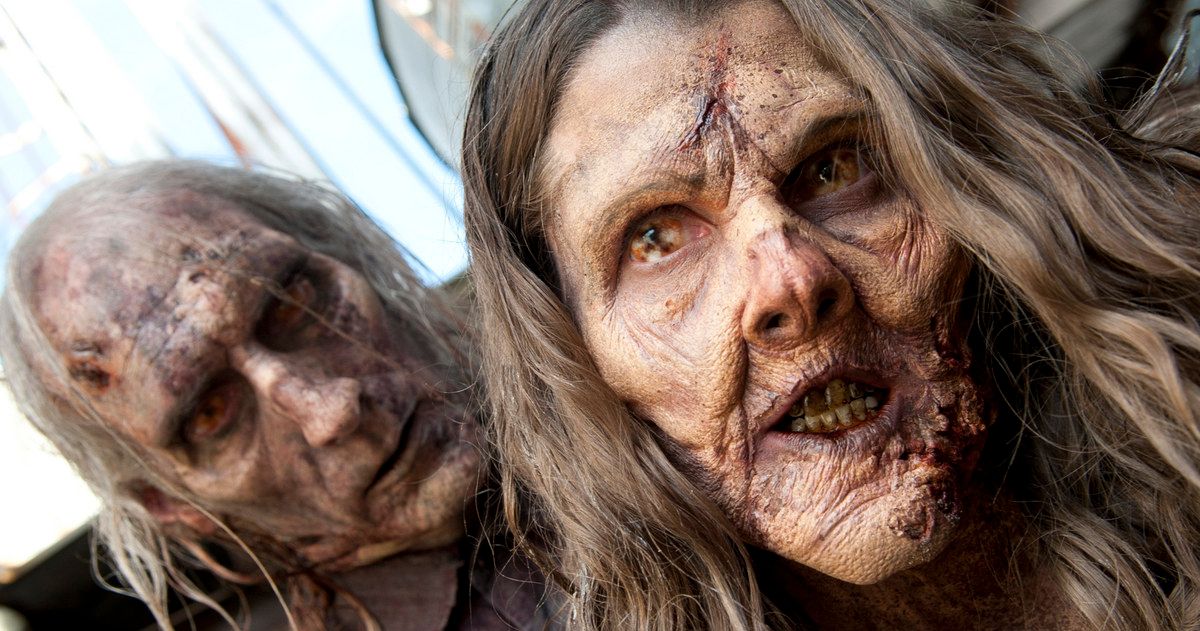Before the full title Fear the Walking Dead was revealed, AMC had called the upcoming show a "companion series" to the wildly popular zombie drama The Walking Dead, which is entering its sixth season on the cable network. While the show has been called a "prequel" in the past, since it explores the beginning of the zombie outbreak in Los Angeles, executive producer and showrunner Dave Erickson revealed that Fear the Walking Dead is a "parallel story" to The Walking Dead, exploring how the zombie outbreak plays out on a different side of the country.
"We are loosely covering the period of time that [The Walking Dead's] Rick (Andrew Lincoln) was in his coma in season one. We're able to watch and experience the things that he missed. It's more of a parallel story than a prequel; imagine the opening where Rick gets shot and goes in his coma - that day was probably very close to our day one. We're playing out the idea of what was going on in the country and the world until he woke up, stepped outside and it's welcome to the apocalypse. That's why a "companion piece" has been the phrase used at the network. It's not a prequel in the sense of Better Call Saul, where we're jumping back six, seven years. It does tie very specifically into the pilot of the original. 'Prequel' is not the right word; it's kind of its own strange, hybrid thing. I wish I had a better word."
Robert Kirkman, who created the comic books The Walking Dead is based on and serves as an executive producer on both shows, has said in the past that he will never reveal the origin of the zombie outbreak in either the comic books or The Walking Dead TV series. When asked if the zombie origins will be explored in Fear the Walking Dead, Dave Erickson had this to say.
"I had a couple of early pitches that touched on what you're referring to and Robert shut me down. For him, it's never been about what caused it; it's always been about the impact it has on people. Robert's always said - and this is what we try to anchor Fear in is: Your parents got divorced or there are zombies. You didn't get invited to the prom, or there are zombies. Because we're starting a bit earlier and have more of a slow burn into the apocalypse of season one, it gives us the opportunity to really ground our family's problems. We have this highly dysfunctional, blended family and all the issues that they face and they would have faced if the apocalypse hadn't struck, those are the problems we're exploring. The main narrative drive is the conflicts within this family dynamic and how those things are exacerbated by the arrival of the apocalypse. We're also trying to show what first is perceived as civic unrest and riots and suddenly we bleed into something that's wholly unnatural. It's about a family: Travis (Cliff Curtis) just moved in with his girlfriend Madison (Kim Dickens) after they got married. She has two children, one of whom has some issues. Travis has a very pissed-off teenager and an ex-wife. You're talking about two people who, as the story opens, all they want is to bring their family together under one roof and make everyone whole. The irony for us is that the only thing that helps accomplish that is that the world ends. What's intriguing to me is to take these problems, which I think would make for a compelling drama, and put them in this much larger canvas and see how they play out. All of the issues that we establish, these are the things that in my head will come to fruition in seasons three, four, five and six. It forges an interesting introduction into this world. It's much more about the "shark" you don't see in season one. We obviously play some of the tropes - and there are definitely walkers - but it's people trying to wrap their brain around what the hell is going on and not fully understanding the zombie apocalypse by act one. It's going through that process of the colleague or the friend you had coffee with the day before is now trying to kill you. And your first thought's going to be, 'They're sick, they're on something.' It takes a bit of time for everyone to wrap their brains around what this truly means."
The showrunner also teased that he envisioned the show lasting for five or six seasons, but that is hardly set in stone at this point. The show will kick off with a six-epsiode first season, just like the debut season of The Walking Dead, with the already-ordered second season likely expanding on that initial six-episode order. When asked if he knows how many episodes will air in the second season of Fear the Walking Dead, the showrunner had this to say.
"I would imagine the network has a very specific plan. I think 13 is a great number; 15, 16, it's really a question of having the time to sit down and make sure we're not burning story to burn story; that we're able to build something that's layered and textured and compelling. I think it's a safe bet that if things go well, they'll probably want more rather than less, but I'm not sure what that number's going to be."
Fear the Walking Dead will debut in late summer on AMC, which could directly lead into The Walking Dead Season 6 premiere sometime in October, depending on when exactly the spinoff show debuts. What do you think about these details? Are you looking forward to seeing the zombie invasion tear apart Los Angeles? Let us know what you think, and stay tuned for more on Fear the Walking Dead.

